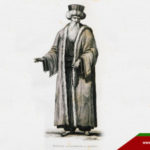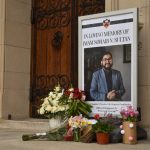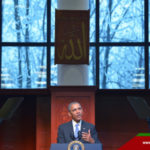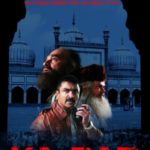Hasnain Walji
Let’s face it—identity these days is anything but simple. Unless, of course, you’re a checkbox. Then you just sit there, smugly rectangular, pretending the entire human condition can be captured in six neat options.
Which brings us to Zohran Mamdani—New York City politician, born in Uganda, son of a Khoja father and a Sikh mother, and raised in the cultural soup that is New York.
Recently, Mamdani caught some heat for identifying as both Asian and African American on his college application. Gasp! Scandal! Or maybe… just honesty? He later clarified he doesn’t consider himself Black but said the application didn’t allow space for the complexity of his background. And seriously, when was the last time a college form made space for nuance? You’re lucky if they let you hyphenate your name.
Let’s break it down.
On one side, he’s Khoja—a community with a history so layered, even a Netflix documentary wouldn’t do it justice.
(Which is precisely why I produced the documentary The Khojas – A Journey of Faith, to attempt to capture just a sliver of that rich complexity.)
Khoja are gujarati merchants-turned- Satpanthi-turned-Ismailis-turned-Twelver Shiʿas, via a detour through mysticism and British colonial entanglement.
Oxford acadenic Faisal Devji defines the Khojas as fusion of “a Vaishnav panth, a Sufi order, a trader’s guild, and a caste.”
If you think that’s confusing, try explaining it to a passport officer.
On the other side, he has a Sikh mother —born of a proud tradition rooted in Punjab, forged in resistance, defined by devotion and defiance. Add a sprinkle of African birthplace and a dollop of American politics, and you get a man who is, quite frankly, the human version of a Venn diagram.
And here’s the quandry—identity is not the same as heritage.
Let’s say it slowly for the folks in the back of the admissions office:
Heritage is what you’re born into.
Zohran is Khoja by heritage—that’s fixed. It’s in the prayers of his ancestors, the rhythm of his surname, the stories handed down like secret recipes. But identity: that tidy bundle of traits and roles we cling to so others know how to label us—and we know who to be on any given day.
Identity evolves. It flows with context, with time, with the social gymnastics required to answer the question “Where are you really from?” for the thousandth time. It’s shaped by how the world sees you, and how you learn to respond with a straight face.
Stuart Hall would call this a process of “positioning.” Anthony D. Smith would call it part of the myth–symbol complex—a cocktail of collective memory, ritual, and symbolism that communities sip on to feel rooted.
Beyond all this academic jargon, here’s the reality: we live in a time when identities are kaleidoscopic. People carry inherited memories, geopolitical baggage, and multilingual WhatsApp groups in their DNA. Mamdani didn’t “game” the system by checking more than one box. He challenged a system that still pretends identity fits on a neat box.
And let’s be honest—if you had to explain to a college admissions officer that you’re a Ugandan-born, New York living-Muslim-American progressive candidate… you’d probably need more than two boxes. You’d need a scroll.
So yes, Zohran Mamdani is African, Asian, Khoja, Sikh, American, and human—in that order, or reversed, depending on the day.
Because the most honest answer to “What are you?” might just be: it’s complicated.
On a historical note: Mamdani is not the only Khoja who shook the political tree. So was another Khoja – Muhammad Ali Jinnah—yes, that Jinnah, the founder of Pakistan. Khojas don’t often enter politics. But when they do? They don’t just show up—they become disruptors.
Maybe it’s in the DNA: merchant mind, mystic soul, and a taste for historic disruption. Zohran isn’t founding a country (yet), but he’s definitely rewriting what it means to be a public servant with layered heritage and unapologetically intersectional politics.








